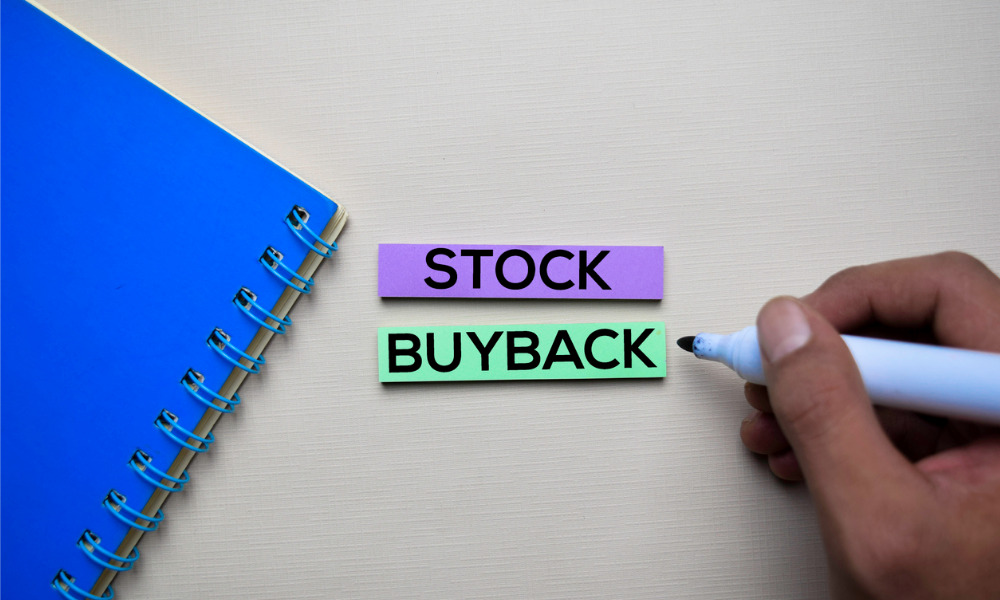Policy experts argue punitive 'stick' approach won't deter companies from rewarding shareholders

The proposed corporate share repurchase tax by the federal government may be popular politically, but analysts doubt it will spur businesses to increase their investment in expanding their operations.
The Liberals promised to impose a 2% tax on stock buybacks in the mid-year budget update released last week. This tax, which will take effect in 2024, is expected to bring in $2.1 billion for the government over the next five years.
The policy aims to discourage a common tactic companies use to reward shareholders in good times: companies repurchase their own stock to lower the number of shares on the market, boosting the value of shareholders' ownership holdings.
The government wants to see Canadian businesses "taking their profits and investing them in the productive capacity of Canada and investing them in their workers," said Finance Minister Chrystia Freeland on Thursday.
The tax proposal comes after Environment Minister Steven Guilbeault blasted oil companies’ limited efforts in tackling climate change, choosing instead to enrich shareholders with huge profits fuelled by inflation.
Oil colossus Cenovus reported third-quarter earnings of $1.6 billion, a 192% increase over the same period a year prior. The company also returned $659 million to shareholders through share buybacks during the quarter.
Canada’s proposed policy – modelled after a 1% tax on stock buybacks enacted this summer in the U.S. – happens at a time when “greedflation” accusations and increased scrutiny of excessive corporate profits are prevalent.
“It's not a bad political move, because I do not think it will offend many voters,” Rick Robertson, professor emeritus at Western University's Ivey School of Business, told the Canadian Press.
Robertson isn't sure the tax will help the government reach its stated objective, arguing that corporations can choose to reward shareholders through dividends instead. Using investment tax incentives as a "carrot" could be more beneficial than employing a "stick" to promote investment, he added.
Because of their tax advantages, firms sometimes opt for corporate stock buybacks rather than dividend payouts to reward shareholders. Buybacks also allow businesses to give back value to shareholders after reporting significant earnings, without being obligated to pay out a greater dividend on a consistent basis.
The imposition of a tax, according to Robertson, may lead firms to declare a special one-time dividend during a year of exceptional earnings.
According to Donald Macdonald, senior economist with the Canadian Centre for Policy Alternatives, agrees the proposal will likely spur a shift from buybacks toward dividends.
Macdonald’s research found that in the second quarter of this year, corporate earnings after taxes increased to a historically high level as measured by share of Canada’s GDP. On the other hand, workers' compensation as a percentage of GDP declined and reached its lowest point since 2006.
However, on the political front, Macdonald noted that the share buyback tax may be an indication of a change in the federal attitude toward firms.
“It does show some increased skepticism toward the corporate sector doing the right thing,” he says.



